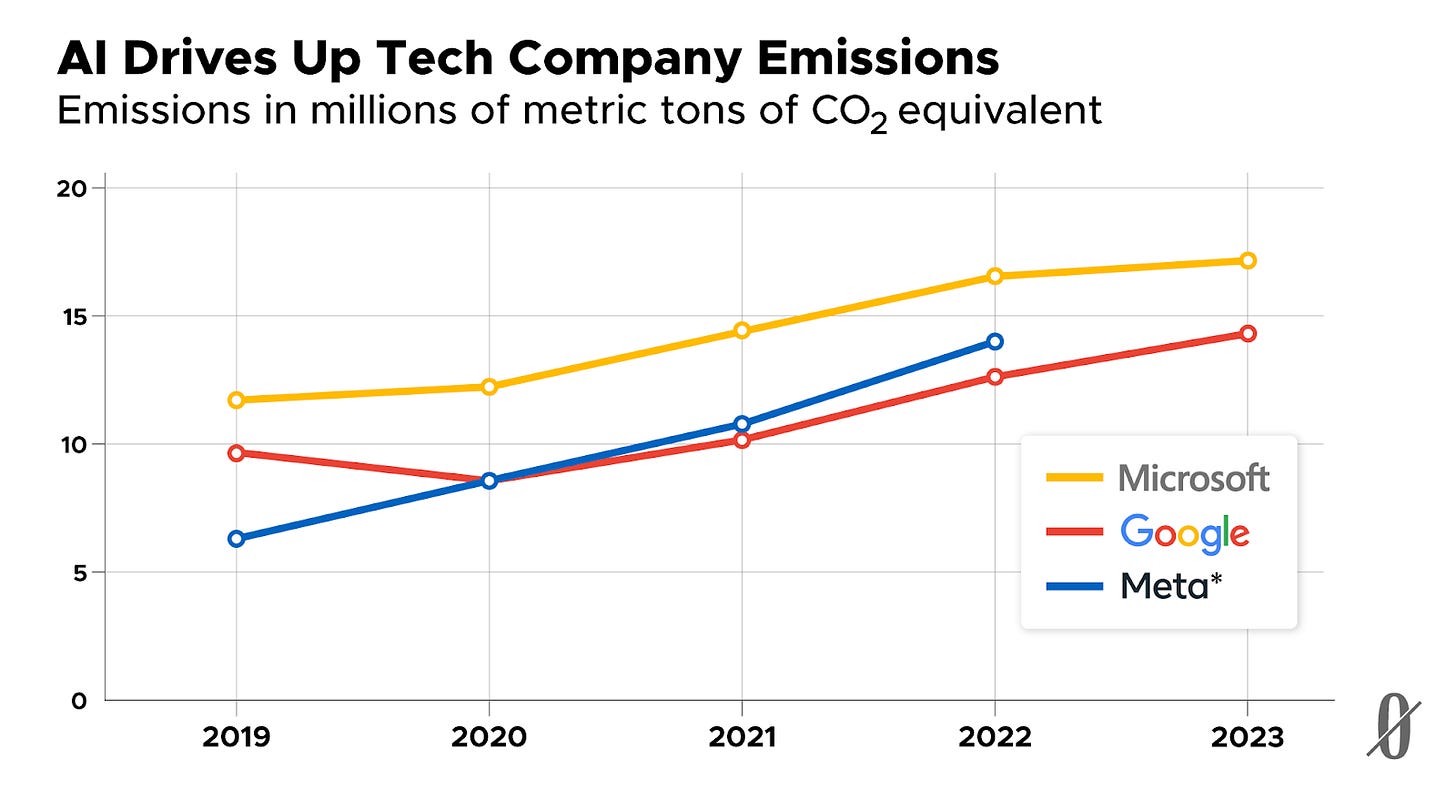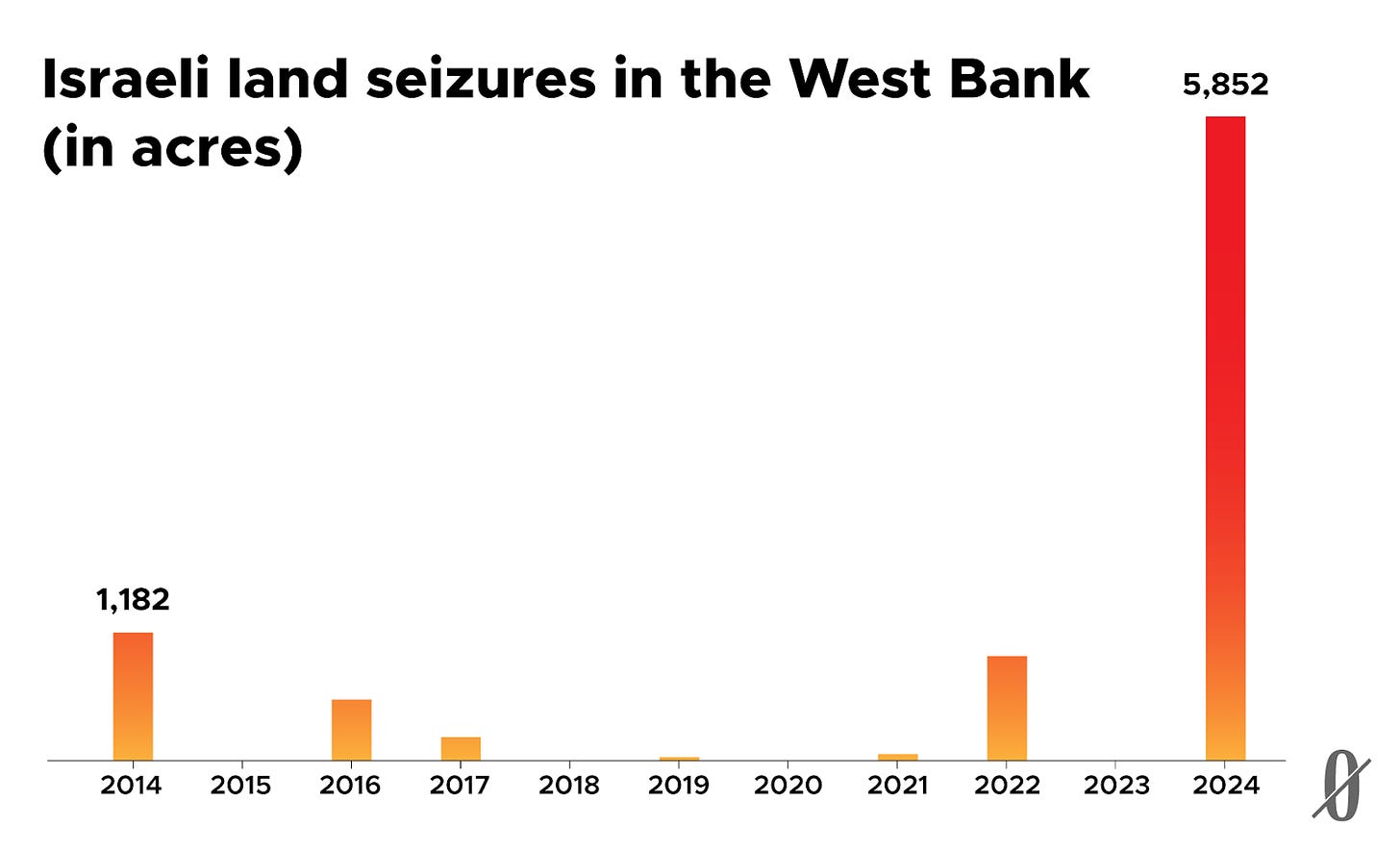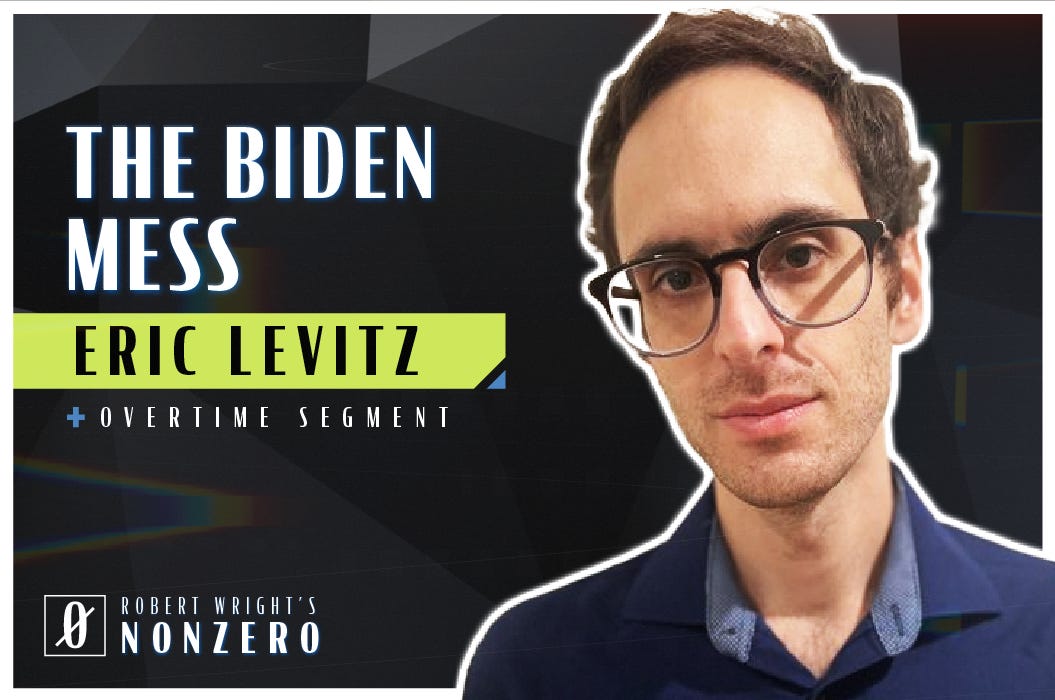The Shrinking West Bank
Plus: AI-boosted Biden, AI-boosted carbon emissions, NATO’s clear-eyed blunder, Iran’s new West-friendly president, and more!
Save the date: I’ll be fielding questions from NZN members on a Zoom call Wednesday July 31 at 8 pm US Eastern Time. The main topic will be foreign policy. If you didn’t find the time to read my manifesto on progressive realist foreign policy in last Friday’s newsletter, I bring good news: a shorter version of it was published this week in the Washington Post. And if you’re not yet an NZN member (aka paid subscriber), I also bring good news: There is a solution to that problem. — RW
This week the outgoing commander of Israel’s military in the West Bank condemned extremist Jewish settlers for a rise in “nationalist crime” against Palestinians. “This is not Judaism to me,” said Maj. Gen. Yehuda Fuchs, adding that it is a “dangerous mistake” to terrorize Palestinians.
Since Hamas’s October 7 assault, settler attacks on Palestinians and their property have increased, and, as a result, so has the number of Palestinians displaced from their homes in the West Bank.

But the settlers aren’t the only problem. Soldiers under Gen. Fuchs’s command have joined in the ethnic cleansing. Human Rights Watch reports that in some cases whole Palestinian communities have been uprooted “with the active participation of army units,” and in other cases soldiers failed to intervene as settlers did the uprooting. “Forced relocation” is a crime under the Geneva Conventions when conducted or abetted by a state.
Meanwhile, West Bank settlements (themselves violations of the Geneva Conventions, which prohibit the transfer of civilian populations to territory acquired by force) are poised to grow in size and number. Last week, the Israeli government approved 5,295 new housing units in dozens of settlements. And the government announced that it had declared 2,965 additional acres in the West Bank to be “state land”—that is, land for future settlements—in the largest single land grab since the 1990s.
Both initiatives will increase the number of settlers who live in proximity to Palestinians and so may increase the rate of ethnic cleansing (assuming that some future, more moderate, Israeli government doesn’t decide to get serious about cracking down on settler violence).
These settlement initiatives will also make hopes of a two-state solution even dimmer than they are now. On Monday, White House spokesman John Kirby lamented that “settlements continue to be counterproductive to a two-state solution.” But for some top Israeli officials, that’s a feature, not a bug. Israeli Finance Minister Bezalel Smotrich, himself a settler, said on Twitter that the newly approved housing units were part of “building the good country and thwarting the establishment of a Palestinian state.”
Google’s annual greenhouse gas emissions have jumped by nearly 50 percent since 2019, a shift that dramatically reduces the firm’s chances of fulfilling its pledge to reach carbon neutrality by 2030, according to its annual environmental report.
The primary reason for the spike is Google’s investment in AI. The most advanced large language models require vast amounts of computing power, and thus electricity, for both training and day-to-day use.
And Google isn’t alone. Microsoft and Meta both say their AI work has caused sharp increases in electricity consumption in recent years. This trend helps explain why some financial analysts estimate that data centers will claim 8 percent of US energy production by 2030, up from around 3 percent today.

Tech giants are proposing solutions to the problem. But most proposals, according to a recent piece by Washington Post reporters Evan Halper and Caroline O’Donovan, fall into one of two categories: sci-fi moonshots and carbon shell games.
In the first category is nuclear fusion, a favorite topic of OpenAI boss Sam Altman. In theory, Altman is right to be bullish: Fusion produces far more energy than nuclear fission, which is already one of the most efficient and green ways to generate electricity (despite concerns about nuclear waste disposal). But theory doesn’t keep the lights on, and scientists say we’re likely decades away from a breakthrough that could make fusion a viable energy source.
This brings us to the shell games. Tech companies often boast that their data centers rely primarily or even solely on green energy sources. But, as Halper and O’Donovan note, that’s not as reassuring as it sounds.
“The companies are operating off the same power grid as everyone else,” they write. When Google or Meta makes use of an existing green energy source, that means someone else can’t use it, so utilities often wind up expanding fossil fuel consumption to meet the increase in overall demand.
The big tech companies say that in the long run AI can be a green technology, helping power grids work more efficiently and speeding up the development of fusion and other clean energy technologies. In a statement to the Post, Google said its use of AI tools to fight climate change is “just as crucial as solving for the environmental impact associated with it.”
Here’s a solution to President Biden’s age problem: Use AI to make him seem younger! That’s the (apparently serious) suggestion of progressive commentator Kaivan Shroff, writing in HuffPost. “How many times have we heard voters and pundits alike gripe that ‘Biden would be the perfect candidate if he were just 10 years younger’?” Shroff asks. “With modern technology, this exact deliverable is possible.”
Shroff is recommending that the Biden campaign employ what you might call “shallowfakes.” (NZN demands credit if this term takes off.) A deepfake might take the form of Biden performing a frenetic action scene from Mission Impossible, his face fastened onto Tom Cruise’s body. A shallowfake would be an actual video of the president that’s been given a coat of AI paint, obscuring the verbal flubs, vacant stares, and stiff gait.
Of course, some of America’s more astute voters might sense that something was amiss. And as doubts grew, Americans could be thrust into the kind of AI-induced “epistemic tumult” that NZN has warned about. But Shroff isn’t alone in seeing AI as a tempting propaganda tool. A recent study by Google’s DeepMind found that manipulating videos of politicians to influence public opinion has become the most prevalent form of AI misuse.
This week the 32 members of NATO, meeting in Washington at their annual summit, declared that Ukraine is on an “irreversible” path to membership in the alliance.
Could be a long path. The NATO members chose not to initiate the formal membership process, so this declaration is essentially a reaffirmation of NATO’s fateful 2008 promise that Ukraine would eventually become a member.
That promise has been criticized for bringing the worst of both worlds: It antagonized Vladimir Putin (who in 2007 had vociferously warned against further NATO expansion), and it led to the growing collaboration between NATO and Ukraine’s military that Putin cited in a 2022 pre-invasion speech, but it didn’t give Ukraine the formal NATO membership that might have prevented an invasion.
The 2008 NATO pledge came in spite of a warning to the Bush administration from its ambassador to Moscow, William Burns, that offering Ukraine membership would antagonize the entire Russian foreign policy establishment and “create fertile soil for Russian meddling in Crimea and eastern Ukraine.” This week Responsible Statecraft reported that Bill Clinton, as he began his NATO expansion drive, received a similar assessment of Moscow’s perspective from National Security Adviser Anthony Lake.
“Russia’s opposition is deep and profound,” Lake wrote in a 1995 memo recently published by George Washington University’s National Security Archive. “For the period ahead, the Russian leadership will do its level best to derail our policy, given its conviction that any eastward expansion of NATO is at root antithetical to Russia’s long-term interests.”
The difference between Lake and Burns is that Burns wanted to sideline NATO expansion and Lake didn’t. After noting “hardening Russian opposition to NATO enlargement, unease among some West Europeans and still-uncertain Congressional support,” Lake said the administration should “intensify our diplomatic and domestic activity” in order to meet the enlargement timetable.
In the 1990s, NATO expansion was favored by arms makers (who funded the Committee to Expand NATO) and by midwesterners of Eastern European ancestry whose votes Clinton hoped to win in the 1996 election.
This week brought one note of hope for Ukraine. Bloomberg reported Wednesday that Ukrainian President Vladimir Zelensky plans to invite Russian officials to participate in a peace summit before the US election in November. Such a meeting would be the first face-to-face peace talks between Ukrainian and Russian officials since early 2022.
Vox journalist Eric Levitz stands out among DC journalists for his dogged and insightful coverage of the Biden campaign’s post-debate saga. In this week’s Nonzero podcast, he didn’t disappoint.
During the free portion of the episode, Eric and Bob broke down the growing pressure on Biden from Democratic elites, and Eric explained how a small group of insiders could force Biden out. NZN members can access the overtime segment, in which the pair take a close look at whether Vice President Kamala Harris would make a better candidate than her boss and discuss whether smoke-filled rooms are really such a bad thing.
Pop Quiz! Who was the first US secretary of State to use the phrase “rules-based international order”?
A. Robert Lansing (1915 to 1920)
B. George Shultz (1982 to 1989)
C. Madeleine Albright (1997-2001)
D. Hillary Clinton (2009 to 2013)











